In Rural Sierra Leone, Quality Care Closer to Home
PIH expands support to remote community health centers
Posted on May 2, 2022
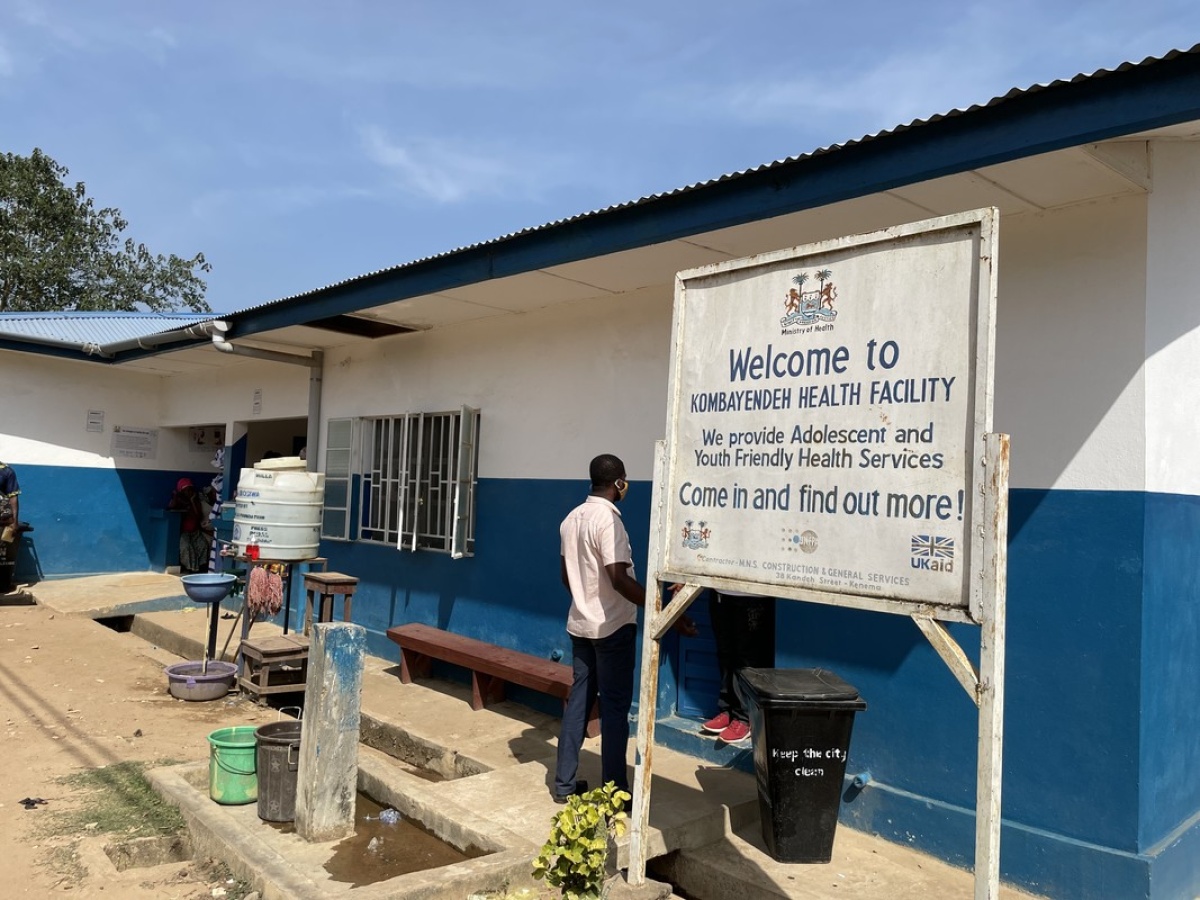
After centuries of extraction by foreign powers, Sierra Leone remains resource-rich but cash-poor, with little to spend on its population’s health. This injustice takes an extreme, visceral form in Kono District, where West Africa’s largest diamond mine sits a short walk away from Koidu Government Hospital (KGH), the district’s only hospital.
When Partners In Health (PIH) began working there in 2014, during the height of the historic Ebola epidemic, KGH was all but shuttered. For fear of contracting the virus, barely any patients were visiting, and routine health services—necessary and lifesaving no matter what—all but ceased.
But even before that, most families opted not to seek care at KGH, mindful that fees were high and quality of services was low. Few of the hospital’s clinicians were well-trained and specialized; most of its pharmacy shelves were empty; and medical technology, let alone reliable access to electricity and plumbing, was out of reach. When a woman needed an emergency C-section, she and her family would have to pay for fuel to run the hospital’s generator, and hope the surgery went smoothly without properly sterilized instruments, a functioning blood bank, or an obstetrician.
Today, Koidu Government Hospital is unrecognizable--for good reasons.
With investments from PIH, made in partnership with Sierra Leone’s Ministry of Health, the hospital boasts more staff than ever, with specialist clinicians and medical education programs. Its supply chain provides continuous access to medications and essential equipment. And 24-hour electricity and running water are guaranteed across a growing number of departments. Once neglected—or worse, feared—the hospital, as well as nearby PIH-supported Wellbody Clinic, is seeing more and more patients year after year, a tribute to their growing reputations as offering quality, accessible services.
And yet—availability does not equal access. For thousands of families living in rural sections of Kono, hours away from KGH and Wellbody, visiting their local community health center is the only feasible option for health care. Taking time away from work and paying for a motorbike trip—sometimes hours long, over nearly impassable roads—is too expensive.
But with few trained clinicians, the lack of continuous electricity, or poorly stocked pharmacies and laboratories, visiting these community health centers is like reverting to the past. And so, much like as it was with KGH, people don’t. And that means living without health care at all.
Knowing the sacrifices that geography and poverty force families to make when it comes to their health, in 2019, PIH formally expanded its support to six community health centers scattered throughout Kono. Sewafe Community Health Center, located a 45-minute drive from KGH, was the first of these facilities to receive comprehensive investments in staff, stuff, space, systems, and social support, resulting in a notable uptick in patients arriving for care.
At the end of 2021, PIH and its Ministry of Health partners celebrated the re-opening of the second of these small, rural clinics: Kombayendeh Community Health Center. Below, see how Kombayendeh—one of the most direly under-resourced clinics in Kono—has transformed with tried-and-true investment from PIH.
{"preview_thumbnail":"/sites/default/files/styles/video_embed_wysiwyg_preview/public/video_thumbnails/1pOhRPLMKQQ.jpg?itok=PekG_Kne","video_url":"https://www.youtube.com/watch?v=1pOhRPLMKQQ","settings":{"responsive":1,"width":"854","height":"480","autoplay":0},"settings_summary":["Embedded Video (Responsive)."]}
The road between KGH and Kombayendeh is notoriously long, bumpy, and, during Sierra Leone’s rainy season, muddy. At best, a trip to the hospital for a family in Kombayendeh would take around three hours; at worst, their motorbike could get stuck in the mud, leaving them stranded for a whole day.
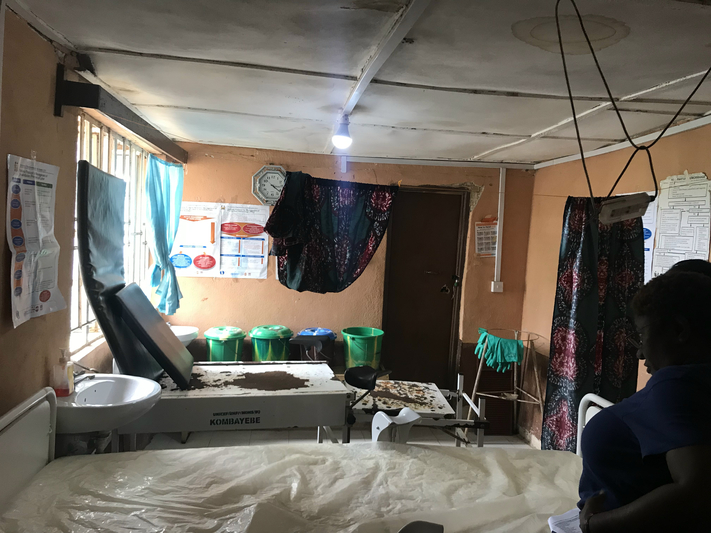
Kombayendeh Community Health Center, meant to serve more than 7,000 people, struggled with access to basic infrastructure needed for health care, including reliable, 24-hour electricity and running water. Clinicians had difficulty sterilizing equipment, storing temperature-sensitive medications, and providing care at night. When women went into labor after the sun went down, clinicians often had to deliver the baby using the flashlight on whoever’s smartphone was most charged.
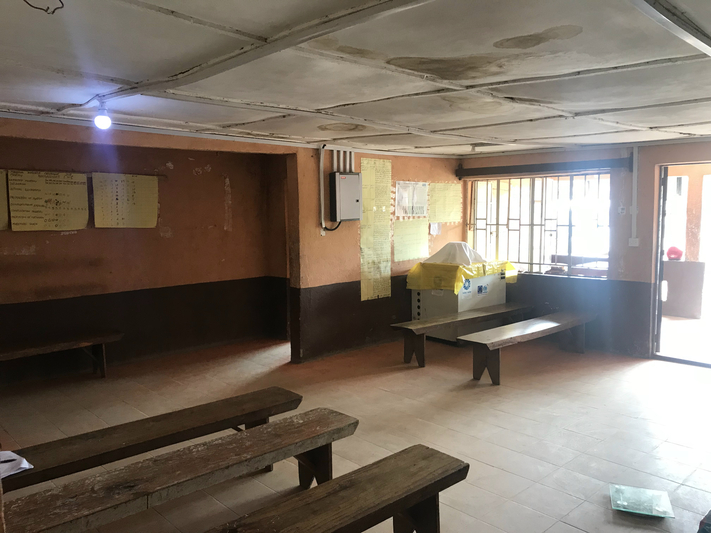
The clinic also lacked a strong supply chain system for drugs and medical supplies; training opportunities for clinicians and lab technicians, to ensure both baseline skills and growth; and dignified spaces in which to deliver and receive care. As a result, most days, Kombayendeh’s waiting room was empty, with families forgoing care they knew wouldn’t be adequate.
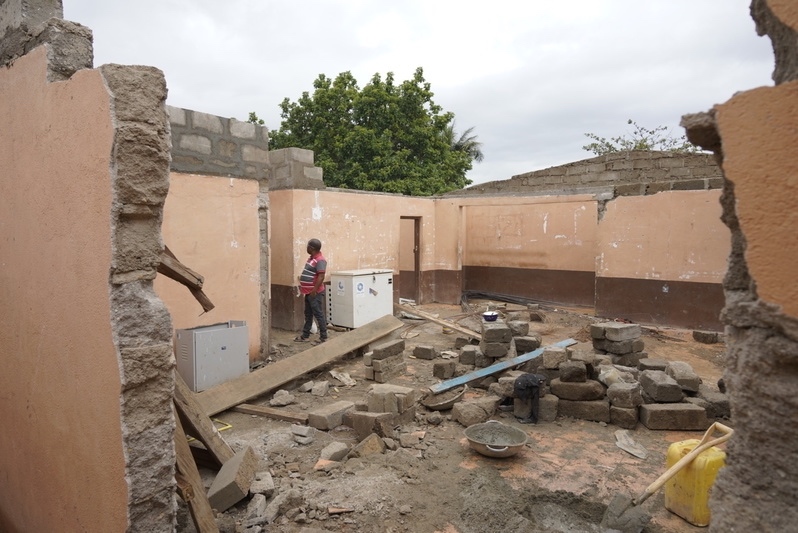
PIH first began working on Kombayendeh’s infrastructure, including expanding the building to introduce a new laboratory and pharmacy; renovating interiors; improving air circulation, to better prevent and control infections; and introducing 24-hour electricity and plumbing, which enabled the installation of air conditioning for the safe storage of drugs.
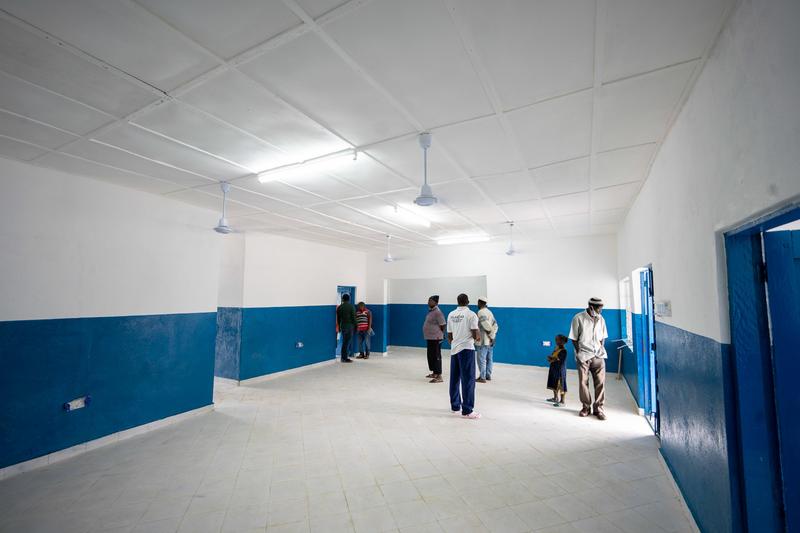
Inside the new Kombayendeh Community Health Center building, PIH staff, alongside local health officials and the facility’s clinicians, were able to begin strengthening other areas of care. PIH began supporting Kombayendeh’s supply chain, ensuring a continuous flow of medications, lab equipment, and other supplies; and established new systems to effectively screen patients, triage them, and safely record and store their medical records. The screening process includes never-before-asked questions to better capture patients who may be suffering from unjustly common illnesses like malnutrition and tuberculosis.
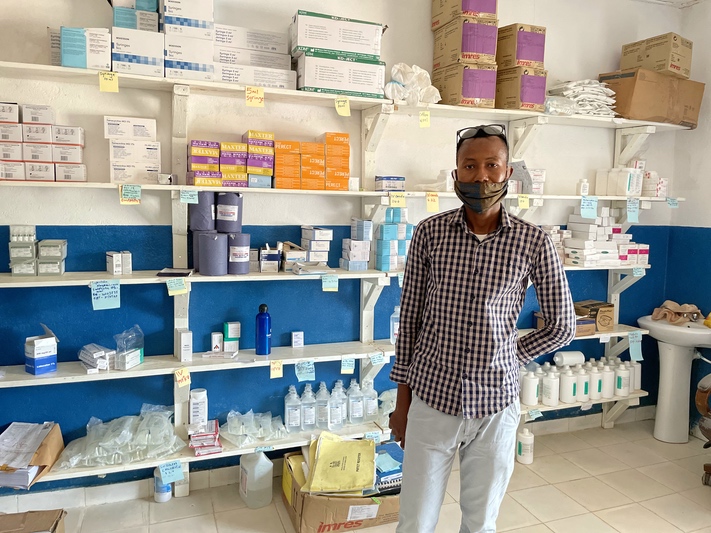
PIH also hired additional staff to work at the facility and provide ongoing clinical training and mentorship. Sulaiman Sawaneh (above) is PIH’s pharmacy assistant at the clinic who helps pharmacy staff develop their skills dispensing medications, managing inventory, and more. He works alongside a pharmacy technician, community health officer, lab mentor, and midwife mentor, all of whom are charged with helping Kombayendeh staff grow as health care providers. PIH also introduced a facility-based officer to the clinic, whose job is to work with community health workers referring patients to Kombayendeh; and a monitoring and evaluation coordinator, whose job is to collect and analyze data around the clinic’s performance.
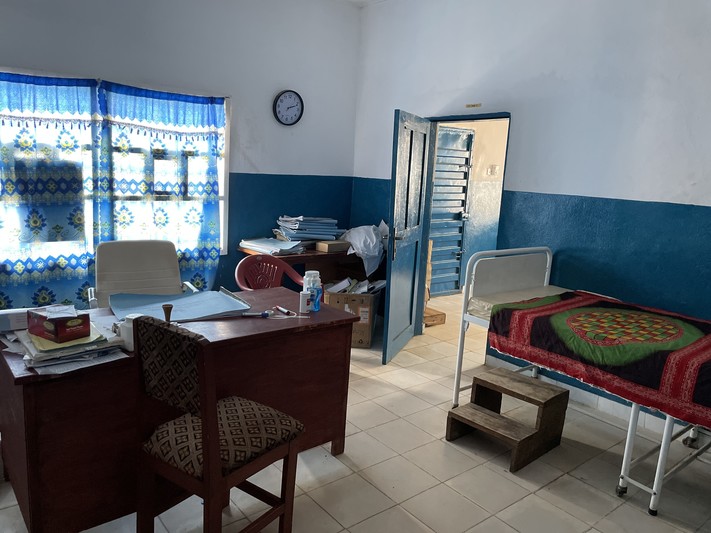
PIH also helped fill in operational gaps at the clinic. Staff replaced worn out desks and chairs for clinicians and beds for patients, and added new furniture to accommodate the facility’s anticipated growth. Internet was introduced. And health care workers were added to a paid-for phone line and purchased new motorbikes, so that communication and transportation would never be barriers to them getting to work and serving patients.
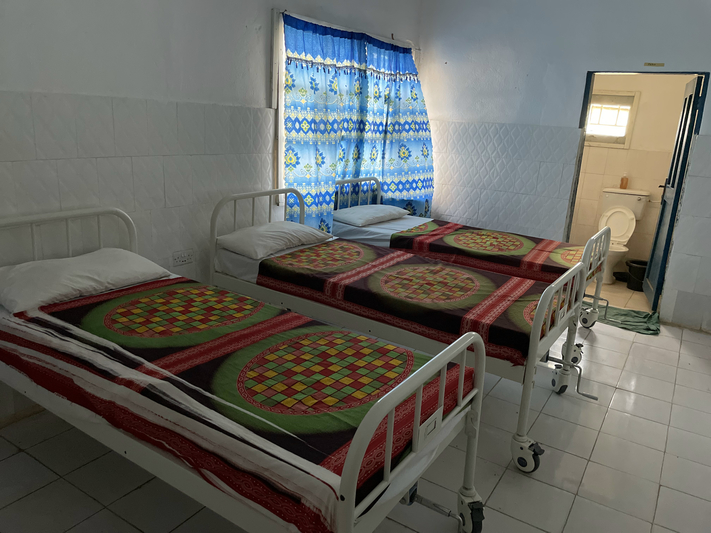
And to ensure the improved care available at Kombayendeh proved truly accessible to all, PIH and its government counterparts introduced a flat fee of 10,000 leones—about one dollar—covering the full spectrum of care, from consultation to lab tests to all prescribed medications. For any patient unable to pay, the fee is waived.
This new policy, combined with the health center's elevated level of care, has brought a steadily increasing number of patients to visit. In July 2020, before PIH began serving Kombayendeh, a recorded 310 patients sought care at the clinic. The following July, after renovations and improvements had begun to take shape, that number more than doubled, to 649 patients.
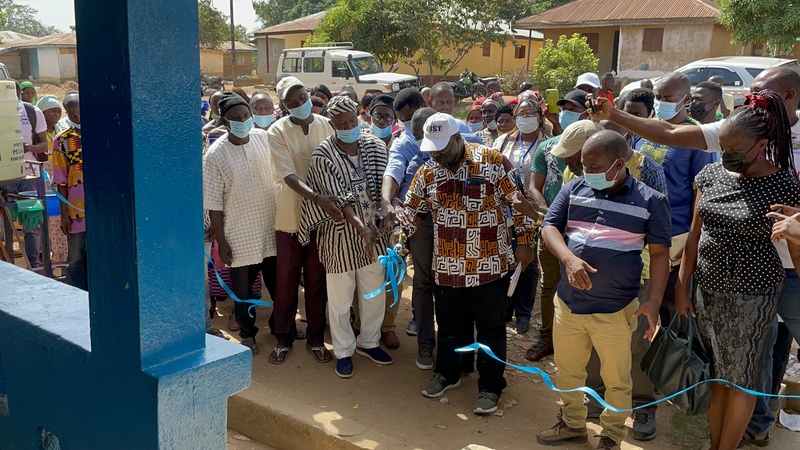
As comprehensive support to Kombayendeh’s staff, stuff, space, systems, and social support programs continues, PIH envisions additional investments, such as the construction of a permanent isolation ward and renovations to staff living quarters. But at a ceremony formally opening the new and improved health center, PIH and facility staff, local health officials, and Kombayendeh residents were focused on the present, admiring just how far the clinic has come.
With Kombayendeh as another example of how we can transform rural, impoverished health facilities, PIH is set to begin supporting another under-resourced clinic in Kono: Kayima Community Health Center. Below, take a tour of this facility, and learn about our plans to invest in it just like Kombayendeh:
{"preview_thumbnail":"/sites/default/files/styles/video_embed_wysiwyg_preview/public/video_thumbnails/JJOIi63_gjI.jpg?itok=2WrRNc43","video_url":"https://www.youtube.com/watch?v=JJOIi63_gjI","settings":{"responsive":1,"width":"854","height":"480","autoplay":0},"settings_summary":["Embedded Video (Responsive)."]}

